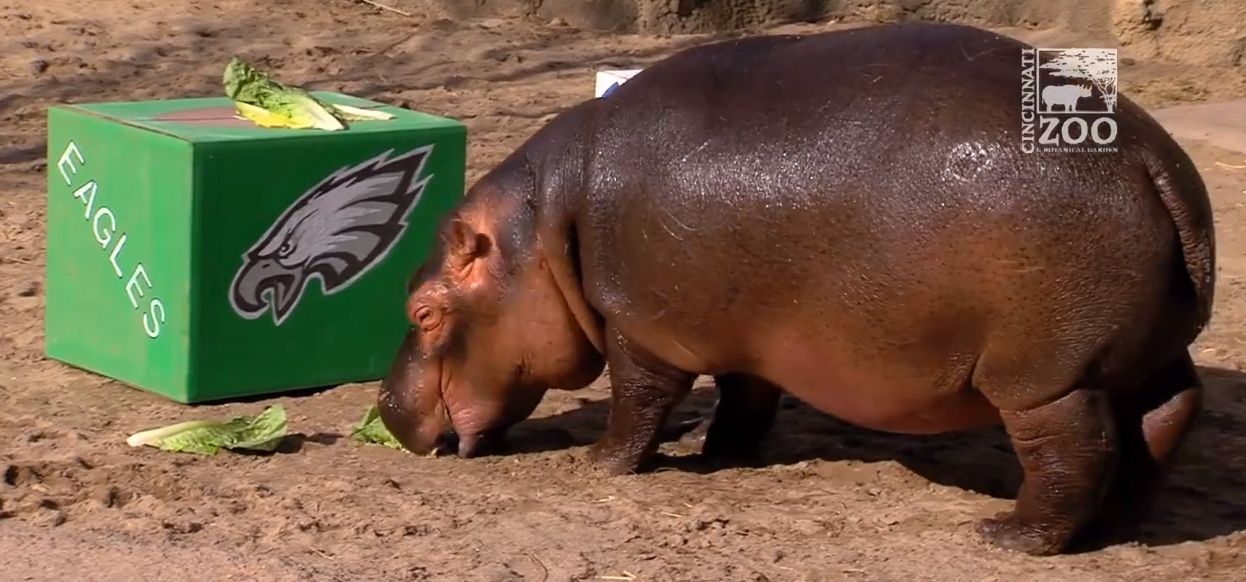Here's Who Will Win the 2018 Super Bowl, According to a Hippo

WARNING: This article contains spoilers for a future live sporting event, assuming that you accept that a 1-year-old hippo has the power to violate all known laws of time and space.
Fiona the hippo has determined that the Philadelphia Eagles will win the 2018 Super Bowl, and she communicated her determination to humanity by eating a bit of lettuce. This is science.
Fiona, a 1-year-old baby hippopotamus, was the first of her species born at the Cincinnati Zoo in 75 years and the first hippo ever imaged with an ultrasound before birth. She was born 6 weeks premature, and at just 29 lbs. (13 kilograms), was the smallest baby hippo ever to survive. It's unclear which of these traits imbued Fiona with the ability to cast her consciousness forward through time and return with the results of major sporting events. But that appears to be what happened, as demonstrated in this video released by the Cincinnati Zoo:
Fiona approached two cardboard boxes, one painted Philadelphia Eagles green and the other New England Patriots red, white and blue. Each container had a couple of leaves of lettuce scattered on top.
Fiona approached the Eagles box first. Then, like, any good performer, she built tension by munching some lettuce on the ground and feinting toward the Patriots box. But she munched the lettuce first off the top of the Eagles box, revealing to the world which team will win the 2018 Super Bowl. [Is Time Travel Possible?]
Fiona joins the ranks of several other animals who can apparently transcend the known limitations of this universe and who have chosen to lend that skill to human betting markets: Paul the World Cup-predicting octopus, Sonny Wool the "socially inept" rugby-predicting sheep, Yowie the Super Bowl-predicting Australian cattle dog and many others.
No word yet from Fiona on whether the 2018 Super Bowl will include any major concussions or other devastating injuries on the road to the now-inevitable Eagles win.
Sign up for the Live Science daily newsletter now
Get the world’s most fascinating discoveries delivered straight to your inbox.
Originally published on Live Science.











